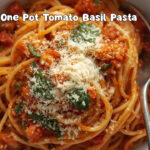Table of Contents
ToggleThe debate often comes down to feta cheese vs goat cheese, when we talk about Mediterranean cuisine or healthy cheese options. At first glance, they look alike, but they differ in flavor, origin, texture, and nutrition. In short, feta is a Greek brined white cheese made from sheep milk with a bit of goat milk, while goat cheese is made fully from goat’s milk and varies in taste.
In this article, I’ll walk you through both choices in detail. We’ll explore how they’re made, how they taste, and how best to enjoy them in everyday meals.
Comparision Chart: Feta Cheese vs Goat Cheese

What Is Feta Cheese?
To begin, let’s talk about feta cheese. This is a Greek-brined white cheese that is mostly made from sheep milk, but it can also include a mixture of up to 30% of goat milk. That’s why some people think it’s the same as goat cheese, but it’s not.
Feta cheese is well known for its crumbly and somewhat coarse texture. It has small or no holes, no skin, and is usually shaped into blocks. Then, it is aged in brine (a salty water solution) for about two months. That process gives it a strong flavor that is both tangy and salty.
Feta is often used in many dishes. You’ll see it in salads, especially Greek salad, and traditional foods like spinach pie (Spanakopita) and cheese pie. It’s also served with olive oil, sprinkled with aromatic herbs such as oregano, or sometimes even grilled.
Now that you understand feta, let’s move to the other side of our cheesy comparison of goat cheese.
What Is Goat Cheese?
Moving forward, let’s look at goat cheese, also known as chèvre. It’s produced from 100% goat’s milk and has been made for centuries in places like France, with many styles of cheeses ranging from fresh and soft to aged and hard.
The making process begins by separating curds from whey, then lightly salted and shaped into logs, discs, or rounds. Some are eaten fresh, while others are aged for several weeks or even three months to mature the flavor. As goat cheese matures, the rind of a goat cheese may darken with age and the flavor becomes stronger.
Compared to feta, goat cheese is usually softer and has a mild, slightly sweet flavor when it’s fresh. Aged types are sharper and have a more dominant flavor.
Now that we understand what both cheeses are, let’s clear up a common confusion.
Is Feta Cheese Actually Goat Cheese?

Many people ask me, “Isn’t feta just a kind of goat cheese?” It’s a good question. So let’s break it down clearly. As I mentioned earlier, feta can contain goat milk, but it is not the same as pure goat cheese.
Feta is a special cheese that must meet certain rules to be called “feta.” It must be produced in Eastern Mediterranean countries, often in the same area, and is made mostly from sheep milk with a little amount of goat milk. It is classified by its milk content and how it’s aged and preserved.
In contrast, goat cheese is made only from goat’s milk using a different making process. It can be enjoyed fresh, or aged much longer to mature its flavor.
Let’s talk about their health benefits.
Nutrition Comparison: Feta Cheese vs Goat Cheese

As we explore the health side, it’s important to note that both cheeses are nutrient-rich milk products that offer a great source of protein, calcium, and healthy fats.
Macronutrient Comparison
Let me break it down simply:
- Feta cheese: Each 1-ounce serving has roughly 75 calories, 6 grams of fat, 1 gram of carbs, and 4 grams of protein.
- Goat cheese: Slightly richer at 80 calories, 7g fat, 0g carbs, and 5g protein.
Fat Type Comparison
Both are high in saturated fats, but goat cheese tends to contain more short-chain fatty acids that are easier to digest.
Vitamin Content
- Feta: Rich in B vitamins such as riboflavin and vitamin B12.
- Goat cheese: Higher in Vitamin A, D, and calcium.
Mineral Content
Since feta is stored in brine during the aging process, its sodium levels tend to be higher. Goat cheese is a better option if you’re watching salt intake, offering more potassium and magnesium.
Now you know the stats, but which one is healthier? That depends on your needs. Feta is better for lower-fat, higher-salt diets, while goat cheese may be gentler on digestion.
Feta and Goat Cheese in Kitchen
This part is one of my favorites! I love using both cheeses when cooking, and they each shine in different recipes.
- Crumble over salads or stuff into omelettes.
- Spread on toast or add to a sandwich.
- Bake into spinach pie, cheese pie, or Greek puff pastry.
- Grilled for a warm appetizer or side dish.
Melting and Texture in Cooking
- Goat cheese melts smoothly, great for sauces or pasta.
- Feta stays crumbly and keeps its shape, ideal for baked dishes.
Storage Tips
- Feta: Keep it in the refrigerator, submerged in a jar or container of brine. It usually stays fresh for several weeks.
- Goat cheese: Wrap it in wax paper and place it in a sealed container before putting it in the fridge to maintain freshness.
Choosing the Right Cheese for Your Needs
Buying Guide for Feta
Look for traditional feta aged in wooden barrels or metal vessels, especially if it’s from Greece. The label might say PDO (Protected Designation of Origin), which means it’s authentic.
Spotting Good Goat Cheese
Fresh goat cheese should be white, creamy, and soft. It should smell fresh, not too strong. Aged goat cheese will have a rind and a stronger flavor.
Budget vs Premium
- Feta: Usually cheaper and easy to find.
- Goat cheese: Prices vary, but French cheeses or aged types may cost more.
Health Benefits
Feta cheese vs goat cheese aren’t just about taste, they each offer unique health benefits too. Feta is an excellent source of calcium and probiotics, which help support strong bones and a healthy gut. On the other hand, goat cheese is naturally lower in lactose, making it easier to digest for individuals who are lactose intolerant. It’s also packed with protein and essential nutrients like vitamin A and phosphorus. So, when selecting the best between these two, it’s not just about flavor; your health needs and dietary preferences matter too. Whether you’re looking to improve digestion, boost protein, or simply enjoy a lighter cheese option, both feta and goat cheese always bring health to the table. The best choice depends on what your body needs most.
Now it’s time to wrap everything up.
Final Verdict – Which One Should You Choose?
So, after learning all this, which one should you go for, feta cheese vs goat cheese? Well, it depends on what you like and how you plan to eat it. Personally, I like to keep both in my fridge. Some days I enjoy the bold punch of feta on my Greek salad. Both can be enjoyed as a slice or a morsel and both are delectable cheeses that add flavor and nutrition to your meals.













